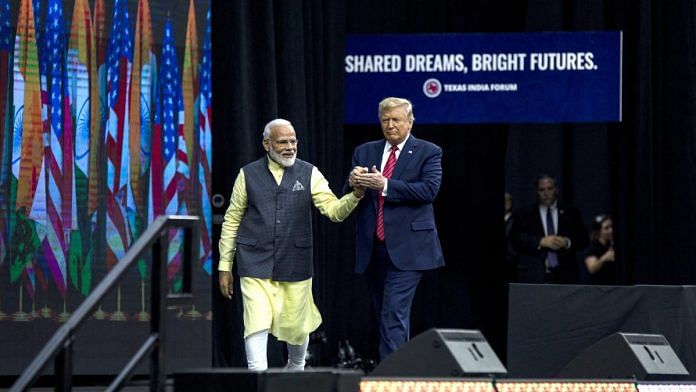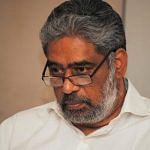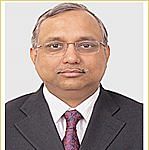C. Raja Mohan | Director, Institute of South Asian Studies, National University of Singapore
The Indian Express
Mohan argues that trade has long been a contentious issue between US and India, and “the pressure has significantly risen under President Trump”. However, he writes, “Trump’s trade offensive is not borne out of special animosity towards India” but is rather a way to woo his predominant supporters — white, anti-free trade working class in America’s rustic belt. Furthermore, India’s “definitive drift” towards protectionism is also not helping matters.
 A Trump visit, in campaign mode
A Trump visit, in campaign mode
Harsh Pant | Director, Studies at ORF, New Delhi
Kashish Parpiani | Research Fellow at ORF, Mumbai
The Hindu 
Pant and Parpani describe how US President Donald Trump is pleasing the Indian diaspora with events like “Howdy Modi” and pleasing the rest of his voter base by fighting a tariff war with India. Prime Minister Narendra Modi has been helping Trump’s outreach to the Indian diaspora but “if re-elected, Mr Trump will possibly double-down on his will to seek renewed trade deals”. Thus, there is a need to carefully calibrate the costs and benefits of Trump’s moves as it seems like his visit to India has little to do with “tempering bilateral frictions” and instead, “political motivations seem to be writ large”.
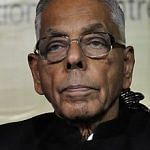 The missing piece in India’s defence jigsaw puzzle
The missing piece in India’s defence jigsaw puzzle
M.K. Narayanan | Former National Security Adviser and former Governor of West Bengal
The Hindu
Narayanan argues in this time of “decisive geopolitical turbulence”, there is a need to “adopt the right strategic choices”. He explains, “Given India’s rising global profile, and with two major adversaries on its borders,” it needs a “well considered and clearly articulated white paper on India’s defence needs, that sets out its strategic concerns, how it is positioning itself to meet these challenges, and the putative costs of meeting the country’s needs”.
 The states are financially squeezed
The states are financially squeezed
Yamini Aiyar | President and Chief Executive, Centre for Policy Research
Hindustan Times
Aiyar describes the fiscal pressures faced by Indian states due to the tax shortfalls of the union government. The central government’s actions, like cutting corporate taxes, have reduced the tax revenue of the states and she argues that by squeezing the state’s funds the “Centre may well be pushing states towards a crisis too.”
Shrikrishna Kulkarni | Chairman of the board of directors of IIM, Kolkata and Mahatma Gandhi’s great grandson.
The Indian Express
Kulkarni argues that misinformation has led to the violent opposition to the Citizenship Amendment Act and the National Register of Citizens and “not even Mahatma Gandhi has been spared in this diabolical game of inflaming passions and inciting violence”. According to him, the CAA can “help heal wounds and reconcile our past”. He cites historical events and Gandhi’s letters and states that the CAA “supports the wishes of Gandhiji in letter and spirit”.
 In the midst of polarising politics and India’s manifold divisions, sport remains the great unifier
In the midst of polarising politics and India’s manifold divisions, sport remains the great unifier
Boria Majumdar | Sports historian and commentator
The Times of India
Majumdar writes about the “political rhetoric” in the country, given “communal tensions, scepticism about the economy” and how the upcoming Olympics may change things. “Sport, in this age of negativity, brings with it a sense of optimism that inspires confidence in the idea of India we stand for and remains a true mirror of our democracy,” he writes.
 India’s race for higher growth
India’s race for higher growth
Pranjul Bhandari | Chief India economist, HSBC Securities and Capital Markets (India) Pvt Ltd
Business Standard
Bhandari compares Indian economic growth with an incident in Karnataka where a man ran alongside buffaloes, to show that “external positives can be short-lived”. If India is to aim for a higher and sustainable growth path, it will have to clean up “impaired balance sheets with much-needed reforms” and “build its internal potential”.
Naushad Forbes | co-chairman Forbes Marshall and past president CII
Business Standard
Forbes suggests that the GST be revamped. Having a maximum of three or four rates will simplify the system and bringing “remaining items…into its fold” will make it comprehensive, he explains. Also, the GST council should only have once a year reviews so that politicians aren’t pressured to “do something”, he adds.
 Let us not get swayed by China’s glitz and weaken our democracy
Let us not get swayed by China’s glitz and weaken our democracy
Salil Tripathi | New York-based writer
Mint
In the wake of the coronavirus outbreak, Tripathi recalls how China handled the SARS epidemic and concludes that it is one of those “closed societies” where what is undesirable is made “invisible”. He also uses this argument to debunk the myth for those “Indians [who] admire China’s progress and want India to imitate China”.
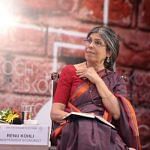 Could inflation be the biggest surprise in 2020?
Could inflation be the biggest surprise in 2020?
Renu Kohli | New Delhi based macroeconomist.
Financial Express
Kohli examines various risks “from macroeconomic policy inconsistencies pursued so far”, which could change the “outlook on inflation” in 2020 and “jolt the complacency on macroeconomic stability”. These risks include fiscal dominance, liquidity overhang and capital influx.
Jahangir Aziz | Chief Emerging Markets Economist, JPMorgan Chase Bank
Economic Times
Aziz points out that monetary policy and debt management — RBI’s two major objectives — often clash as seen in the MPC’s decision to keep policy rates “on hold” while RBI found rise in inflation “benign enough to effect a cut in interest rates”.
Chandrajit Banerjee | Director general, Confederation of Indian Industry (CII)
Economic Times
With the coronavirus outbreak affecting Chinese imports into India, Banerjee recommends that the government and the RBI be on guard to “tweak policies wherever required to help tide over the exigencies”. Perhaps India will have to, for the time being, expand domestic capacity or find alternatives to imports such as electronics, machinery, organic chemicals and pharmaceuticals, he states.
Today’s Editorials
The Times of India: In ‘Tread with care’, TOI comments on the linking of the electoral roll with Aadhar. It says that the linking of Aadhar for everyone including non-migrant workers should not be made compulsory. The effort to clean the electoral database will need only the demographic data for corroboration which might not be highly reliable, it states.
Hindustan Times: In ‘India’s Trade Challenge’, HT comments on how India has not finalised a trade deal for over half-a-decade. The failure to bring the US trade deal to closure is particularly telling, it states. It suggests that the government must institutionalise a structure that handles numerous industry and labour lobbies who favour protectionism. New Delhi must accept and engage in broader dialogues called by the US over these issues, it recommends.


